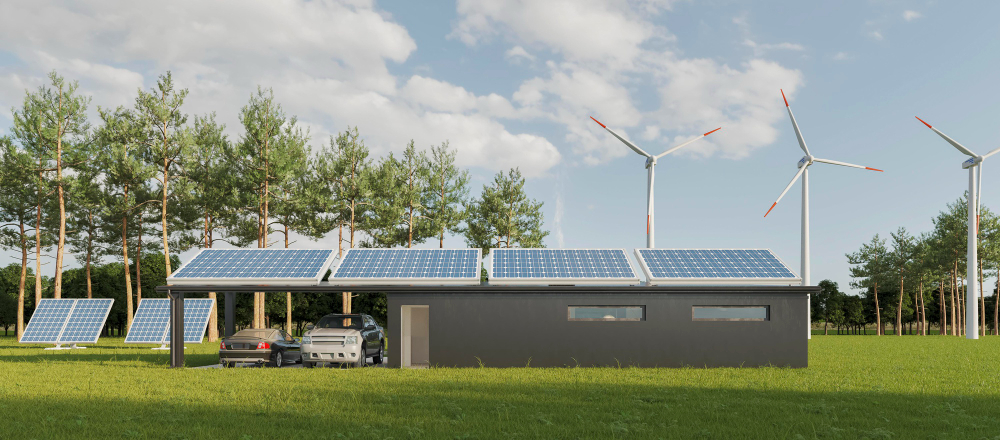As the global energy landscape evolves, the need for innovative and reliable energy solutions has never been more critical, particularly in regions where access to electricity remains a significant challenge. In Nigeria, where millions still lack reliable access to power, microgrids have emerged as a vital solution to bridge the energy gap. Rhinobay Energy Ltd, a revolutionary energy company, is leading this revolution, offering cutting-edge microgrid solutions that are transforming energy access across the country.
Understanding Microgrid Technology
A microgrid is a localized energy system that can operate independently or in conjunction with the main power grid. It typically integrates multiple energy sources, including renewable energy such as solar or wind, and sometimes includes energy storage systems like batteries. Microgrids are designed to supply electricity to a specific area, such as a village, industrial park, or campus, and can be scaled according to the energy needs of the community they serve.
One of the key advantages of microgrids is their ability to provide reliable, resilient, and sustainable power, even in remote or underserved areas. They can function autonomously, ensuring continuous power supply during outages or grid failures, making them an ideal solution for regions with unstable or non-existent electricity infrastructure.
The Need for Microgrid Solutions in Nigeria
Nigeria faces significant energy challenges, with a national grid that is often unreliable and unable to meet the growing demand for electricity. Frequent blackouts, high transmission losses, and the lack of grid coverage in rural areas have left many communities without reliable access to power. This lack of electricity hampers economic development, limits access to essential services, and contributes to energy poverty across the country.
Microgrids offer a practical and sustainable solution to these challenges. By decentralizing power generation and distribution, microgrids can provide reliable electricity to off-grid and rural areas, reduce the strain on the national grid, and support the integration of renewable energy sources. This makes them a crucial component of Nigeria’s strategy to expand energy access, improve grid stability, and promote sustainable development.
Rhinobay Energy’s Microgrid Solutions
Rhinobay Energy is committed to delivering innovative and sustainable energy solutions that address Nigeria’s unique energy challenges. The company’s microgrid solutions are designed to provide reliable, affordable, and clean energy to communities, businesses, and industries across the country. Rhinobay Energy’s approach to microgrid development is characterized by a focus on customization, community engagement, and technological innovation.
Key Features of Rhinobay Energy’s Microgrid Solutions
Rhinobay Energy’s microgrid solutions incorporate several advanced features that enhance their performance, reliability, and sustainability:
1. Renewable Energy Integration
Rhinobay Energy’s microgrids are primarily powered by renewable energy sources such as solar or wind, making them environmentally friendly and sustainable. By harnessing the abundant natural resources available in Nigeria, Rhinobay Energy’s microgrids reduce reliance on fossil fuels, lower greenhouse gas emissions, and contribute to the country’s transition to a cleaner energy future.
The integration of renewable energy also ensures that communities have access to a reliable and continuous power supply, even in areas where the national grid is unstable or nonexistent.
2. Energy Storage Systems
To ensure a consistent and reliable power supply, Rhinobay Energy’s microgrids are equipped with advanced energy storage systems, such as lithium-ion batteries. These storage systems capture excess energy generated by renewable sources during periods of low demand and release it during peak demand or when renewable generation is low, such as at night or during cloudy days.
Energy storage is a critical component of microgrids, as it enhances grid stability, smooths out fluctuations in energy supply, and ensures that power is available when it is needed most.
3. Scalability and Flexibility
Rhinobay Energy’s microgrid solutions are designed to be scalable and flexible, allowing them to be tailored to the specific energy needs of the communities or businesses they serve. Whether it’s a small village, a large industrial park, or an entire island, Rhinobay Energy’s microgrids can be customized to meet the demand, making them a versatile solution for a wide range of applications.
This scalability also allows the microgrid to grow alongside the community or business, ensuring that the energy supply remains adequate as demand increases over time.
4. Hybrid Energy Systems
In areas where renewable energy alone may not be sufficient to meet demand, Rhinobay Energy offers hybrid microgrid systems that combine renewable sources with conventional energy generation, such as diesel generators. This hybrid approach ensures a more reliable power supply by providing backup generation capacity when renewable energy is not available.
Hybrid systems are particularly useful in regions with variable weather conditions or where energy demand is highly unpredictable, ensuring that the microgrid can deliver consistent and reliable power at all times.
5. Advanced Monitoring and Control Systems
Rhinobay Energy’s microgrids are equipped with advanced monitoring and control systems that enable real-time management of the energy network. These systems allow for the efficient allocation of resources, automated response to changes in demand or supply, and proactive maintenance of the grid to prevent outages.
The use of smart technology in microgrid management ensures optimal performance, reduces operational costs, and enhances the overall reliability of the energy system.
Impact of Rhinobay Energy’s Microgrid Solutions
Rhinobay Energy’s microgrid projects have had a transformative impact on the communities and businesses they serve, providing a range of social, economic, and environmental benefits:
1. Enhanced Energy Access
By providing reliable and affordable electricity to off-grid and underserved communities, Rhinobay Energy’s microgrids have significantly improved energy access across Nigeria. This has had a direct impact on the quality of life in these areas, enabling households to light their homes, power appliances, and access modern communication technologies.
Schools, healthcare facilities, and businesses in electrified communities now have the power they need to operate efficiently, improving education, healthcare, and economic opportunities.
2. Economic Development
Access to reliable electricity is a key driver of economic development. Rhinobay Energy’s microgrid solutions have enabled the growth of small businesses, enhanced agricultural productivity, and supported the development of local industries in rural areas. This has created new job opportunities, reduced poverty, and stimulated economic growth in the communities served by the microgrids.
By reducing reliance on expensive and polluting energy sources like diesel generators, Rhinobay Energy’s microgrids have also lowered energy costs for businesses, making them more competitive and sustainable.
3. Environmental Sustainability
Rhinobay Energy’s commitment to renewable energy integration has made its microgrid solutions a powerful tool for environmental sustainability. By reducing the use of fossil fuels and lowering greenhouse gas emissions, these microgrids contribute to Nigeria’s efforts to combat climate change and protect the environment.
The use of clean energy sources also reduces air and noise pollution in communities, improving public health and creating a more livable environment.
4. Resilience and Reliability
Rhinobay Energy’s microgrids are designed to be highly resilient, capable of maintaining power supply even during grid failures or natural disasters. This reliability is particularly important in regions prone to extreme weather events or where the national grid is unstable, ensuring that communities and businesses have access to continuous power when it is needed most.
The ability of microgrids to operate independently of the national grid also enhances energy security, reducing the risk of widespread blackouts and ensuring that critical infrastructure remains operational during emergencies.

The Future of Microgrid Development with Rhinobay Energy
As Nigeria continues to grapple with energy challenges, the role of microgrids in expanding access to reliable and sustainable power will become increasingly important. Rhinobay Energy is committed to leading the way in microgrid development, investing in research and innovation to advance the technology and expand its reach across the country.
The company’s vision for the future includes the development of more sophisticated microgrid systems that integrate cutting-edge technologies, such as smart grids and artificial intelligence, to optimize energy management and enhance grid performance. Rhinobay Energy also plans to explore new business models, such as community-owned microgrids, to ensure that the benefits of electrification are shared equitably among all members of the community.
By continuing to innovate and expand its microgrid solutions, Rhinobay Energy is poised to play a critical role in shaping the future of energy in Nigeria. The company’s microgrids are not only providing immediate solutions to the country’s energy challenges but are also laying the foundation for a more sustainable, resilient, and inclusive energy system.
Conclusion
Rhinobay Energy’s microgrid solutions are transforming the energy landscape in Nigeria, providing reliable, sustainable, and affordable power to communities and businesses across the country. Through innovative technology, community engagement, and a commitment to environmental sustainability, Rhinobay Energy is helping to bridge the energy gap and drive economic development in some of the most underserved regions of Nigeria.
As the demand for energy continues to grow and the need for resilient and sustainable solutions becomes more urgent, Rhinobay Energy’s microgrids represent a vital component of Nigeria’s energy future. By pioneering these solutions, Rhinobay Energy is not only meeting the immediate energy needs of today but is also paving the way for a brighter, more sustainable future for generations to come.















Leave a Reply